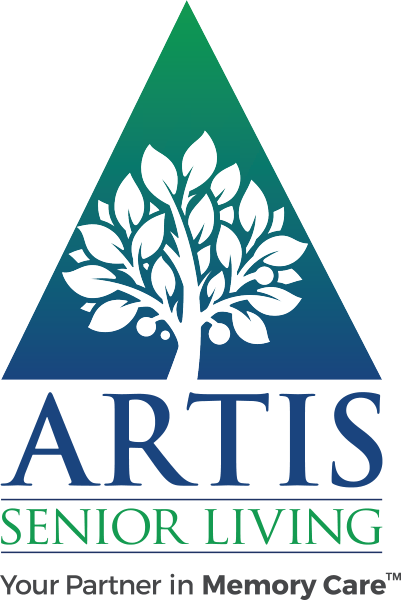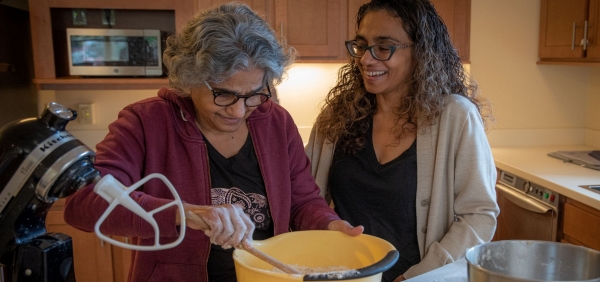What’s the Difference Between Dementia and Alzheimer’s Disease?

When it comes to medical diagnoses none of us want to hear, dementia and Alzheimer’s disease are right up there with cancer, heart attacks, and strokes. But what exactly is dementia and why does it cause us such fear and anxiety? And what’s the difference between Alzheimer’s and dementia?
Understanding Dementia
Dementia is an umbrella term. Just as cancer is an overarching classification of diseases including skin cancer, breast cancer, lung cancer, etc., dementia is a generic term for diseases/conditions that affect the mind, particularly our ability to reason and think clearly, and lead to memory loss.
Although all the media attention given to dementia these days may cause you to think differently, dementia isn’t a normal part of aging. And while you might usually hear about Alzheimer’s, there are many other types, including:
- Lewy body dementia
- Frontotemporal dementia
- Vascular dementia
- Limbic-predominant age-related TDP-43 encephalopathy
- Chronic traumatic encephalopathy
- Parkinson’s disease dementia
- Creutzfeldt-Jakob disease
- Huntington’s disease
Understanding Alzheimer’s Disease
Alzheimer’s disease is a type of dementia. More specifically, it’s a degenerative disease of the brain caused by cell damage. Symptoms gradually worsen over time from mild to moderate to severe, until Memory Care is eventually required.
As Alzheimer’s advances, symptoms get more severe and include disorientation, confusion, and behavior changes. Eventually, speaking, swallowing and walking become difficult.
Some symptoms of mild Alzheimer’s disease
- Mood/personality changes
- Increased anxiety/aggression
- Memory loss that disrupts daily life
- Trouble handling money/paying bills
- Loss of spontaneity
Some symptoms of moderate Alzheimer’s disease
- Problems with reading, writing, and calculating numbers
- Increased confusion and memory loss
- Shortened attention span
- Withdrawal from social activities
- Inability to learn new things
- Impulsive behavior and inappropriate outbursts
Some symptoms of severe Alzheimer’s disease
- Weight loss/no interest in eating
- Loss of bowel and bladder control
- Increased sleeping
- Inability to communicate
- No awareness of recent experiences or surroundings
Alzheimer’s Disease vs. Other Dementias: The Importance of a Proper Diagnosis
So, what’s the difference between Alzheimer’s disease and other forms of dementia? It’s often in the diagnosis. If you or a family member is experiencing problems remembering recent events or thinking clearly, it’s time to get a professional opinion. A doctor may conduct tests to see what might be causing the symptoms. If your first stop is a general practitioner, be prepared to receive a referral to a specialist, most likely a neurologist, if they feel dementia might be the issue.
Being diagnosed with Alzheimer’s disease or a different type of dementia will give you a better understanding of what you’re dealing with and what to expect. It will also provide you with time to adjust and get the support you need, including:
- Helpful information
Dementia can cause your mood to change in increasingly dramatic ways. Knowing what to expect, and being able to talk about these changes with your friends and loved ones, will allow everyone in your life to be better prepared. Having a knowledgeable support group will also help you on days when you feel especially low. - Benefits and protections
Legally, your employer cannot discriminate against you if you’ve been diagnosed with Alzheimer’s or another form of dementia. Neither can other businesses. In addition, by receiving a diagnosis, you may also be eligible for financial benefits. - Professional support
Just because there is no cure for Alzheimer’s and other forms of dementia doesn’t mean you should give up hope or feel that you’re alone. By being diagnosed, you’ll learn the specific form of dementia you have, as well as the symptoms and general time frame you can expect for symptoms to advance. You’ll also have access to therapies, medication, drug trials and support groups.
Alzheimer’s or another type of dementia? There’s no difference in the care we provide.
Artis senior living communities are your partners in understanding aging and dealing with the symptoms and differences between Alzheimer’s disease and other types of dementia. As you age, you undergo changes in physical, mental and emotional health. But Alzheimer’s and other dementias aren’t part of the normal aging process.
If you or a loved one is diagnosed with dementia, we’re here for you. As experts in Memory Care, we provide education and support along the way. We can also help you navigate your care options. For more information about your caregiving needs or about our unique personalized approach to memory care, The Artis Way, contact us today.



